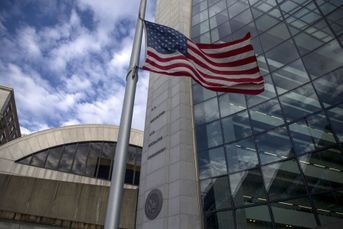‘Father of ETFs’ warns about leveraged funds
Jim Ross of State Street says exchange-traded funds that use leverage are too dangerous for retail investors.
Jim Ross, known as one of the fathers of exchange-traded funds, says leveraged ETFs aren’t a viable long-term investment vehicle, and his company, State Street Global Advisors, will never sell them.
Mr. Ross, who was part of the team that designed the first U.S. ETF, the SPDR S&P 500, at State Street in 1993, says securities that offer souped-up returns are just too dangerous for the average person.
Leveraged ETFs need “extreme education for the end investor to be using them,” Mr. Ross, executive vice president of the money manager and chairman of its global ETF business, said in an interview during a visit to Tokyo. At State Street, “we do not see a place” for them.
The funds are designed to pay some multiple of the index they track, usually twice or three times the daily return — or its inverse. While that enables investors to make bigger profits, it also increases their risk of losses, prompting criticism that investing in them is akin to gambling.
Mr. Ross was speaking in the country that’s home to the world’s largest leveraged ETF. Nomura Asset Management Co.’s giant fund, designed to rise or fall twice as fast as the Nikkei 225 Stock Average, had more than $5 billion in assets at the end of March.https://www.investmentnews.com/wp-content/uploads/assets/graphics src=”/wp-content/uploads2018/04/CI115322430.PNG”
While he concedes that the product category has proven “very popular” with some investors, that doesn’t change his thinking on the risks.
“I worry a fair amount that the majority of the usage of the leveraged ETFs is, in many cases, retail,” Mr. Ross said. “It’s a very large spectrum of investors and I think it comes with a responsibility to make sure there’s strong education available.”
Still ‘Tiny’
Still, leveraged funds are still such a “tiny” part of the global market, Mr. Ross says. Not only that, he doesn’t see them expanding to problematic levels.
Viewed globally, Mr. Ross has a point. There was almost $70 billion in leveraged ETFs worldwide at the end of March, according to data compiled by Bloomberg. But that was just 1.5% of the $4.8 trillion ETF market.
In the U.S., the world’s largest stock market, leveraged funds accounted for just 1.1% of domestic ETFs. In Japan, they made up 2.9%.
Still, there are some countries, particularly in Asia, where leveraged ETFs have a much bigger presence. Take Taiwan, where they accounted for 40% of the ETF market. Or South Korea, where they made up more than a fifth.
But regardless of the size of the market, Mr. Ross is adamant that State Street will never offer the products. “What we really want to bring to our client base is something that they can use to build long-term portfolios,” he said.
One argument that he doesn’t necessarily buy is that leveraged ETFs exacerbate volatility and distort the market. Nomura Asset’s fund has been criticized for doing just that as the fund trades in futures to meet its price target.
“I hear that every once in a while, but every time I talk to some more academically oriented folks who study the markets, they don’t see that impact,” Mr. Ross said.
Learn more about reprints and licensing for this article.








